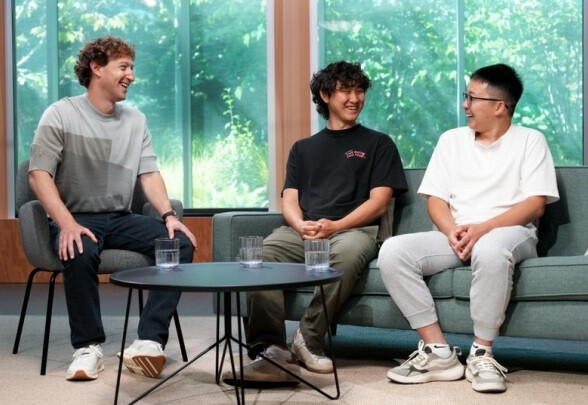
A recent piece of news that has become a hot topic in the IT industry is the large-scale move of key OpenAI talent to Meta. In particular, Shengjia Zhao, a co-developer of ChatGPT, has been appointed as a Chief Scientist at Meta's Superintelligence Labs (MSL). Meta CEO Mark Zuckerberg personally announced this news on his social media platform, Threads, on July 25.
Zuckerberg stated, "Shengjia has established himself as a leader in this field by pioneering multiple breakthroughs, including new scaling models," adding, "I look forward to working closely with him to drive our scientific vision together." Zhao will now work directly with Zuckerberg and Alexandr Wang, Meta's new head of AI and co-founder of Scale AI. In addition, three other researchers who helped establish the OpenAI Zurich office—Lucas Beyer, Alexander Kolesnikov, and Xiaohua Zhai—have also joined Meta. All three also previously worked at Google DeepMind.
Zuckerberg is significantly expanding his investment in the AI sector. He has invested $14 billion in Scale AI and has established the Superintelligence Labs (MSL) to focus on next-generation AI models and research. In early July, he also announced plans to invest "hundreds of billions of dollars" in AI computing infrastructure.
Foreign media outlet Fortune has called the establishment of MSL Zuckerberg's most audacious move since he rebranded Facebook to Meta in 2021 to realize his metaverse vision. However, this course of action also carries risks. Problems have been pointed out, including the great expectations placed on Alexandr Wang, who is not a computer scientist, and the ambiguous definition of "superintelligence." While superintelligence is often understood as artificial general intelligence (AGI), or AI that surpasses human ability in most fields, some sources classify superintelligence as a stage even higher than AGI. This ambiguity in definition has raised concerns that it could make Meta's direction unclear.
Currently, a fierce competition to secure AI talent is underway in Silicon Valley. Naveen Rao, the Vice President of Databricks, estimates that there are fewer than 1,000 people worldwide capable of building advanced AI models. This scarcity makes talent even more valuable.
Zuckerberg is actively pursuing talent, going as far as sending personal emails and inviting researchers to his home for conversations. Meanwhile, OpenAI CEO Sam Altman is also making efforts to recruit desired talent by making personal phone calls. Meta's large-scale recruitment is expected to be a major event that will shake up the landscape of the AI industry.
[Copyright (c) Global Economic Times. All Rights Reserved.]




























